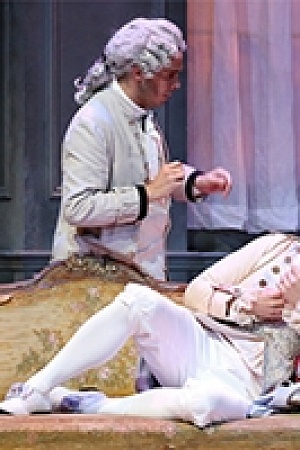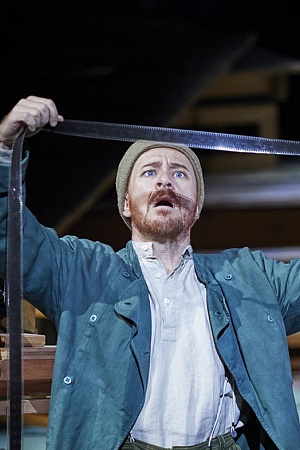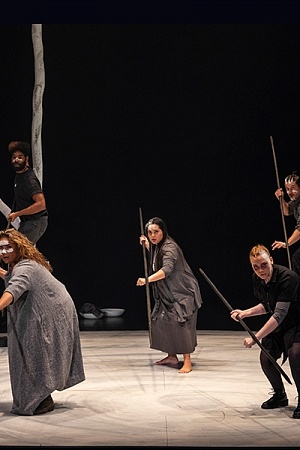Der Rosenkavalier (Melbourne Opera) ★★1/2
Hugo von Hofmannsthal and Richard Strauss consciously set out to emulate Mozart in Der Rosenkavalier, and succeeded, creating not only the last great Romantic opera but the most perfect Viennese confection, and Strauss’s most-loved opera.
It was an immediate hit from its Dresden première on 26 January 1911. Dresden gave fifty performances within a year, all sold out, and special trains were run from Berlin. Other German companies were equally confident: the opera opened in Nuremberg the day after Dresden, Munich a few days after that, then Hamburg (with a new young soprano, Lotte Lehmann, as understudy to Sophie. Lehmann followed a not unusual route via Sophie and Octavian to become among the greatest of Marschallins). Cigarettes and champagne were named Rosenkavalier.
Strauss biographer Michael Kennedy notes that Straus was ‘always alert and responsive to the mood of the day, holding a mirror to contemporary life. In Salome, he reflected the fin de siècle fashion for decadence and art nouveau in the manner of Oscar Wilde and Aubrey Beardsley; in Elektra there are Freudian overtones, even if they are accidental; and in Der Rosenkavalier he wrote the opera par excellence which enshrines pre-1914 Europe, its opulence and gaiety, the sense of time running out, the cynicism, the beauty, the abundance of melody and the refusal to face reality’.
Bittersweet, it is both funny and poignant, as well as extremely demanding to stage, requiring a virtuoso orchestra, an assured and sensitive conductor, a refined director, and a large cast of singers. In particular, it needs three brilliant women whose voices can blend and balance for the Marschallin, her seventeen-year-old lover Octavian (a trouser role), and the delicate, innocent Sophie, who will supplant her. It is a comedy but also profoundly serious, and the director must work to achieve this balance.
Continue reading for only $10 per month. Subscribe and gain full access to Australian Book Review. Already a subscriber? Sign in. If you need assistance, feel free to contact us.











Leave a comment
If you are an ABR subscriber, you will need to sign in to post a comment.
If you have forgotten your sign in details, or if you receive an error message when trying to submit your comment, please email your comment (and the name of the article to which it relates) to ABR Comments. We will review your comment and, subject to approval, we will post it under your name.
Please note that all comments must be approved by ABR and comply with our Terms & Conditions.